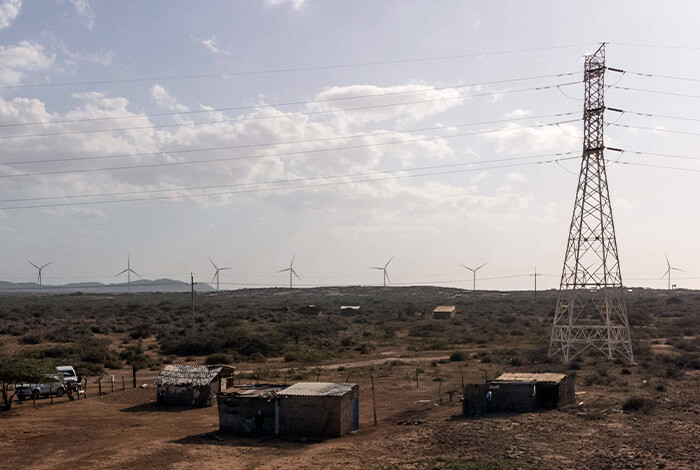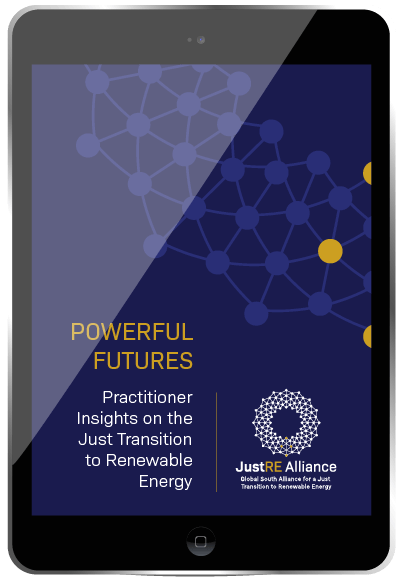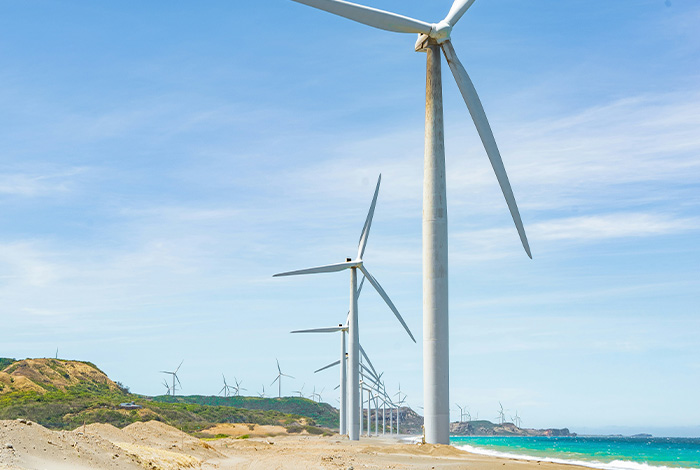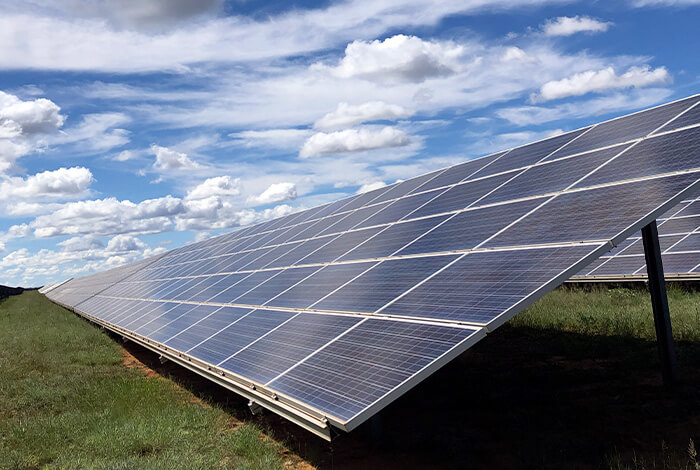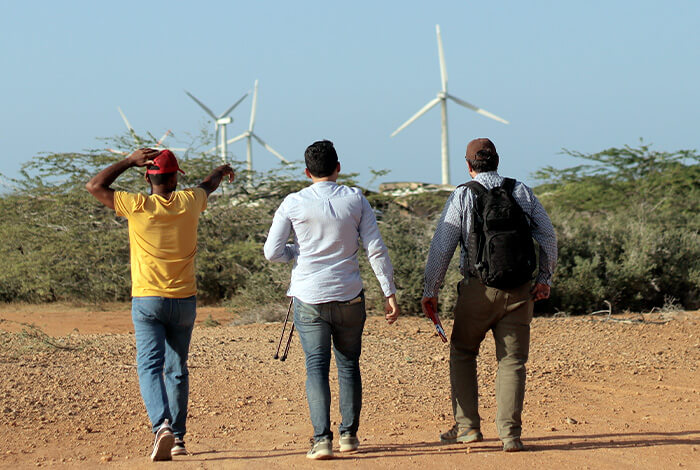The benefits of the energy transition cannot be overstated. Renewable energy offers environmental, health, and socio economic advantages. These include reduced air pollution, job creation, energy access, and enhanced energy security.[3]United States Department of Energy, Environmental Impacts of Clean Energy | Department of Energy [Accessed in June 2024][4]International Renewable Energy Agency, 2017, Renewable Energy Benefits: Understanding the Socio-Economics Nonetheless, as with other infrastructure, renewables are not without risks of negative impacts. These can include risks to human rights and health in the mining of raw materials, as well as resettlement and displacement of livelihood activities at utility-scale RE sites.[5]Stockholm Environment Institute, 2022, Considerations for a just and equitable energy transition For just energy transitions, it is essential to mitigate negative and maximise positive impacts.
While different conceptual approaches to the meaning of just energy transitions (JET) exist, the common threads are low carbon, inclusivity, fairness, and economic resilience at the national and local levels. The following figure presents a selection of concepts developed by international entities:
Building beyond the previous concepts, this book takes an all-encompassing and systemic approach to justice and equity concerns,[9]Stockholm Environment Institute, 2022, Seven principles to realize a just transition to a low-carbon economy for instance[10]United Nations Global Compact, 2023, Just Transition and Renewable Energy: A Business Brief[11]Climate Justice Alliance, Just Transition: A framework for Change recognising the multiple dimensions across time, space, and the project lifecycle and the need for structural reform. In doing so, the book draws on existing literature identifying five forms of justice that are relevant to a just energy transition, as illustrated in Figure 2.[12]Raphael Heffron, 2023, Energy justice — the triumvirate of tenets revisited and revised
The conversation about just energy transition has focused on the phasing-out of fossil fuels, resulting in a gap in research and discussion about the impacts and best practices in the phasing-in of utility-scale renewable energy.[13]Grantham Research Institute on Climate Change and the Environment, 2024, What is the just transition and what does it mean for climate action?[14]Autumn Spanne, 2021, Just Transition: History, Principles, and Examples[15]Just Transition Centre, 2017, Just Transition: A Report for the OECD The purpose of this book is to contribute to filling this important gap by showcasing — from a Global South perspective — promising emerging inclusive practices drawn from the experience of JustRE members.
This book discusses relevant issues and shares promising practices related to land and water resources, supply chains, community engagement, and benefit sharing. These discussions are followed by reflections on enabling factors, including policies and practice standards, and an outlook on future work and the role of JustRE.
While the book seeks an in-depth exploration of critical aspects of the RE challenge, readers should be mindful that the book does not attempt to fully capture the nuances and complexities of the whole RE sector. The book centres on examples of practice from utility-scale RE (solar, wind, and geothermal). However, we acknowledge the crucially important role of distributed energy resources, grid transmission and distribution, energy efficiency, and other technologies and innovations in the process towards a sustainable and just energy system. Readers are encouraged to critically approach the information presented, recognising that it represents a snapshot of experiences and perspectives from different contexts.
The Alliance experts, representing various Global South regions, have collaborated through the Book Sprints[16]Book Sprints, 2019, Home methodology to develop this book. The book gathers invaluable practice insights, capturing experiences and lessons learned in RE deployment across the Global South and offering practical guidance and real-world examples to inform and inspire future sustainable RE initiatives. The book thus draws on the deep and wide-ranging expertise of organisations actively engaged in utility-scale RE implementation in Colombia, India, Kenya, Mexico, the Philippines, and South Africa. The organisations involved provide policy and industry practice advice, support, and capacity building in allyship with project-affected communities.
The Alliance aims to foster knowledge sharing and collaboration among like-minded organisations to guide JET’s progress in the Global South. Defined by a profound dedication to equity, inclusivity, and community self-determination, JustRE members are committed to advancing just energy transitions globally. The Alliance is committed to placing these values at the forefront to enable the creation and roll-out of sustainable RE projects and guarantee the distribution of their benefits across all relevant parties.
JustRE seeks to catalyse transformative change in the RE sector by creating spaces for dialogue, facilitating knowledge sharing, fostering partnerships, and identifying actionable strategies that build on collective and adaptive learning. At the time of writing, JustRE is in its pilot year, building momentum towards a longer-term vision. Once the appropriate foundation is laid, the Alliance will seek to expand into a broader platform, accessible to organisations and stakeholders working in and/or on the Global South that share the goals of building more just societies, economies, and energy systems.
- [1] United Nations Framework Convention on Climate Change, 2023, Conference of the Parties serving as the meeting of the Parties to the Paris Agreement
- [2] International Renewable Energy Agency, 2023, World Energy Transitions Outlook
- [3] United States Department of Energy, Environmental Impacts of Clean Energy | Department of Energy [Accessed in June 2024]
- [4] International Renewable Energy Agency, 2017, Renewable Energy Benefits: Understanding the Socio-Economics
- [5] Stockholm Environment Institute, 2022, Considerations for a just and equitable energy transition
- [6] United Nations Development Programme, 2023, What is just transition? And why is it important?
- [7] The African Climate Foundation, 2022, Just Energy Transitions and Natural Gas In Africa: Balancing Climate Action And Structural Transformation
- [8] International Institute for Sustainable Development, 2024, Just Transition
- [9] Stockholm Environment Institute, 2022, Seven principles to realize a just transition to a low-carbon economy for instance
- [10] United Nations Global Compact, 2023, Just Transition and Renewable Energy: A Business Brief
- [11] Climate Justice Alliance, Just Transition: A framework for Change
- [12] Raphael Heffron, 2023, Energy justice — the triumvirate of tenets revisited and revised
- [13] Grantham Research Institute on Climate Change and the Environment, 2024, What is the just transition and what does it mean for climate action?
- [14] Autumn Spanne, 2021, Just Transition: History, Principles, and Examples
- [15] Just Transition Centre, 2017, Just Transition: A Report for the OECD
- [16] Book Sprints, 2019, Home
